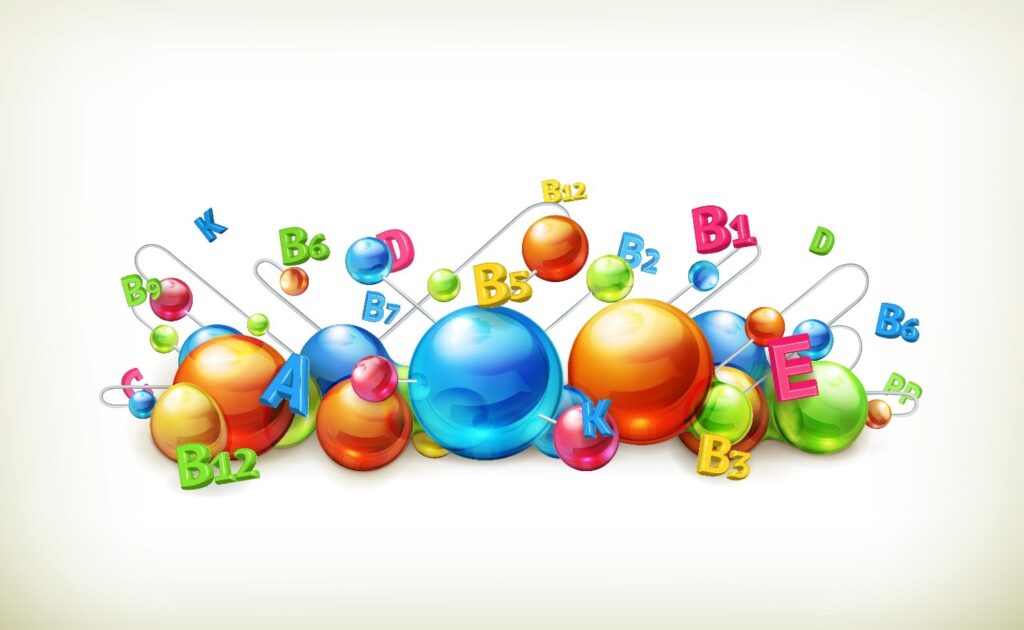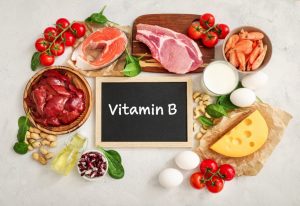Often referred to as brain food, several components of nutrition have been shown to be beneficial for the brain. Food consumed regularly, whether healthy or unhealthy, has an evident effect on the brain.

High-quality whole foods that contain noteworthy amounts of nutrition act as a primary fuel source for the brain; after all, the brain operates 24 hours a day, seven days a week, so fueling it well is imperative.
Contrastingly, a lack of nutrients supplied to the brain can result in a poor-performing brain.
In what follows, we’ll be detailing several essential vitamins, minerals, and supplements for improving overall brain health and cognition. More specifically, we’ll define each and discuss its benefits.
Supplementing for Brain Health
Whether from a whole foods diet or supplementation, the brain requires several vital vitamins and minerals to function and operate at an optimal level. Therefore, an absence or deficiency in these vitamins and minerals in the diet may result in deficiencies in the brain, affecting brain health.
While consuming these compounds via a whole foods diet is optimal, it’s appropriate to supplement where necessary. This is especially true if blood testing suggests an identifiable deficiency.
The following are several vitamins, minerals, and alternative supplements beneficial for brain health and cognition.
Omega-3 Fatty Acids
Fatty fish such as salmon and sardines are among the richest food sources for omega-3 fatty acids. As an essential nutrient for brain function, omega-3 fatty acids play several roles in brain health.

Acting as a natural anti-inflammatory and nitric oxide booster, optimal dosages of omega-3 fatty acids promote blood flow to the brain, improving overall brain function, such as memory, while also decreasing the risk of depression and cognitive conditions such as dementia.
If omega-3s can’t be consumed from fatty fish due to allergies or food preferences, supplementation is the next best alternative.
Vitamin E
As an antioxidant that aids in the protection against free radicals, vitamin E is yet another excellent vitamin for brain health and cognition. In fact, it’s recently been proposed as an alternative consideration for Alzheimer’s disease.
While more research certainly needs to be done before conclusively suggesting this as a predominant treatment, the correlations identified in previous research are that low levels of Vitamin E have been seen in individuals who developed Alzheimer’s disease. Conversely, sufficient levels of Vitamin E may correlate with a prolonged time before the development of Alzheimer’s disease.
L-Theanine
Often supplemented or consumed via green tea or in tandem with caffeine to reduce the onset of caffeine-induced stress and anxiety, l-theanine acts as a sort of mild tranquilizer and aids in the relaxation of the nervous system.
While the relationship between l-theanine and the brain is yet to be fully understood, several theories have suggested a mechanism for the calming effect of l-theanine on the brain. Some studies have suggested not only its calming effects but also its ability to boost memory, mood, and cognition.
L-Carnitine
As one of the most abundant nutrients in the body that also exists in animal meats, fatty fish, eggs and poultry, dairy, nuts, and seeds, l-carnitine is widely accessible through one’s diet.
Studies have suggested that l-carnitine plays several integral roles that promote brain health, including the release of free radicals, the reduction of oxidative stress, and the promotion of cognition and neuroprotection of the developing brain.
It’s also been presented in the Journal of Neurology that l-carnitine may provide benefits for the prevention of Alzheimer’s disease.
Iron
Chronic iron deficiency can lead to anemia, which is a condition of low red blood cell numbers and is seen in nearly 30% of the world’s population. The symptoms of anemia include extreme fatigue and irritability, and some individuals with this condition also have the risk of syncope or “passing out.”
Iron’s role in the brain includes oxygen transportation, neurotransmitter metabolism, and DNA synthesis. Thus, it is a primary modality for maintaining proper brain function in individuals of all ages.
Vitamin B
Inclusive of vitamins B6, B9, and B12, vitamin B is essential for a healthy functioning brain. In fact, according to a Harvard nutritionist, it’s the most important vitamin for the brain and its function.

Vitamin B12, in particular, is often recommended as a daily supplement for the aging population as a preventative measure for early-onset memory loss and cognitive decline.
The optimal Vitamin B diet includes whole foods like bananas, oranges, nuts, seeds, and beans. If adequate amounts of this diet cannot be attained, supplementation is available as the next best alternative.
The nutritional elements discussed have been the most prominent in health discussions as having the most potential benefit for brain health. Other compounds have been suggested as beneficial for brain health, yet scientific literature has not conclusively proven a benefit in these compounds.
For example, according to a recent study, the compound Ginkgo biloba has not been shown to change the development of dementia in individuals.
Final Thoughts
Diet and nutrition are integral to one’s physical and mental health. This encompasses all major organs, including the heart and the brain. By optimizing a diet around nutritional deficiencies and consuming the most predominant brain foods, brain health can be prioritized.
Begin with identifying any key deficiencies and improving them with diet and supplementation to be the most proactive in improving brain health.
